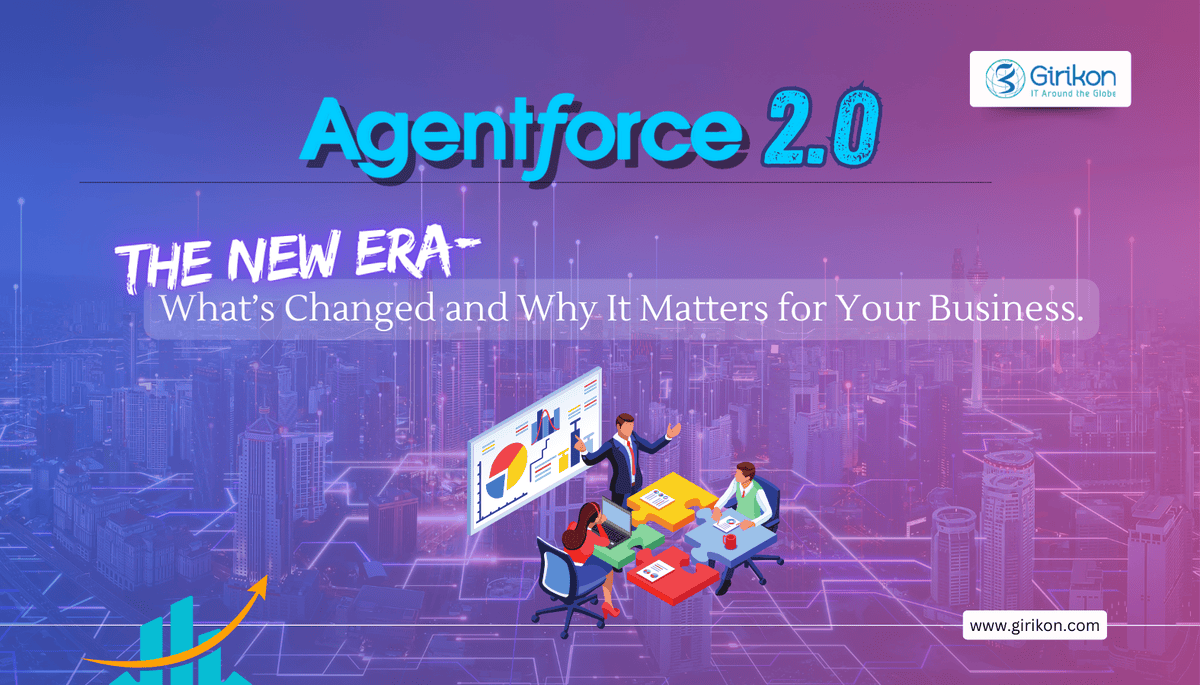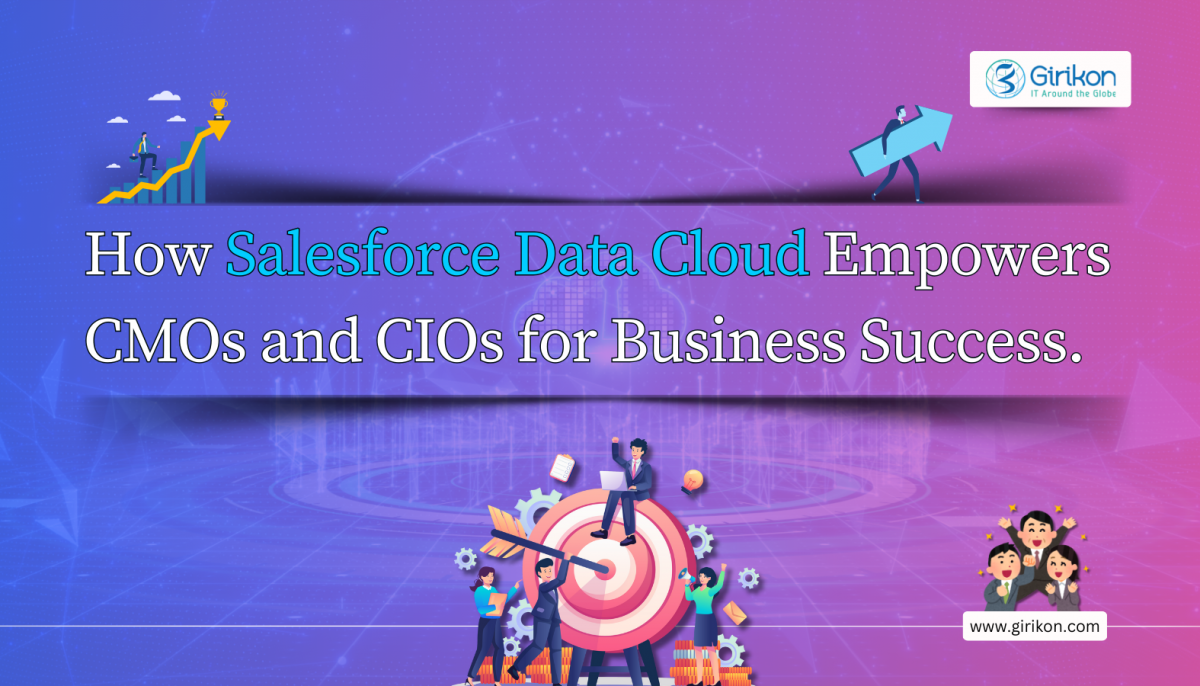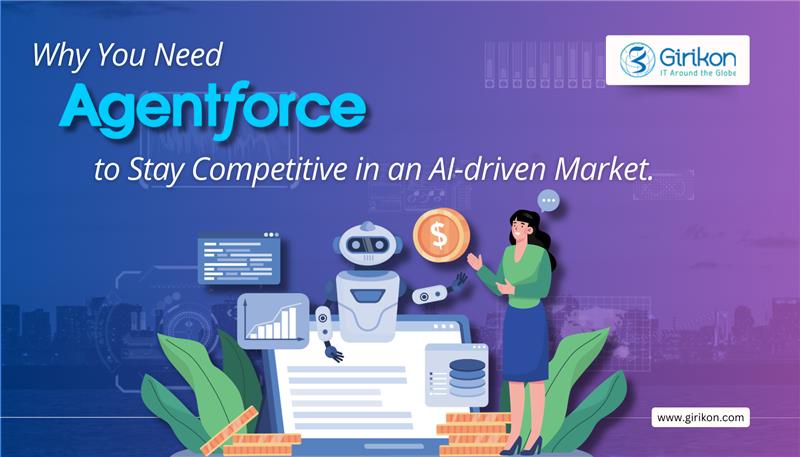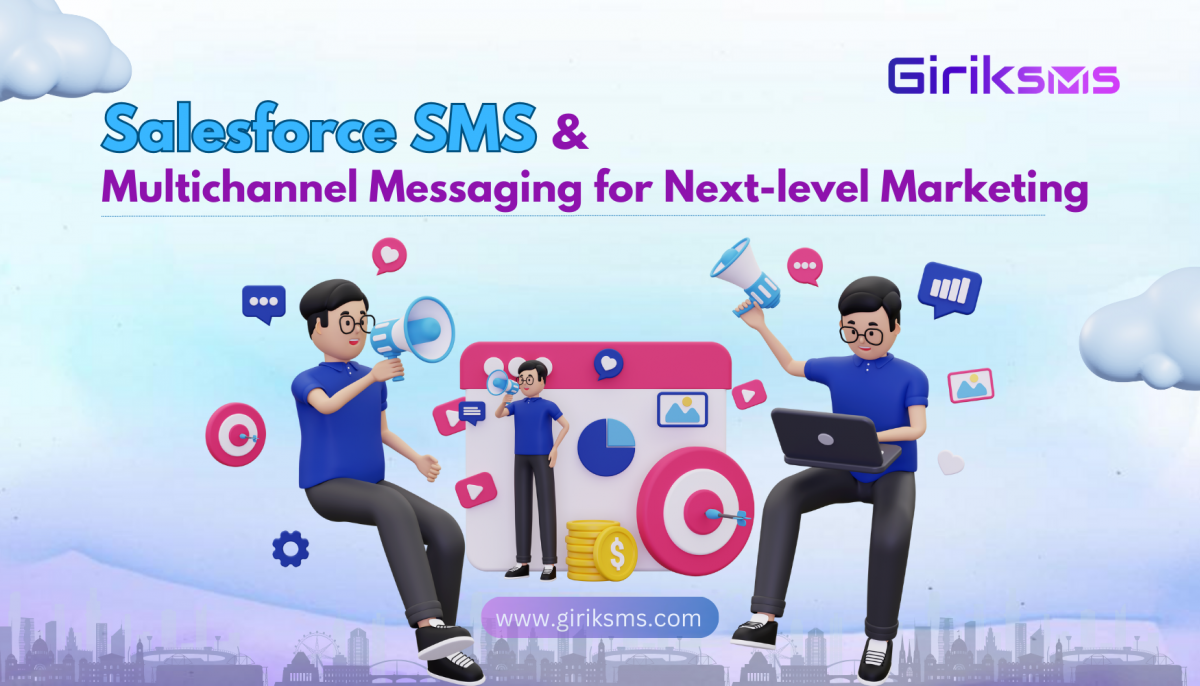Our Blogs
Customer Relationship Management Software, widely referred to as CRM software, is playing a vital role today across enterprises of various sizes. By aggregating and managing customer data, Salesforce CRM enables enterprises to manage a wide range of key business functions such as lead generation and conversion, sales and marketing, tracking customer engagement and automating workflows. As enterprises are able to streamline their business processes with CRM software, each of these individually separate functions and activities are now better streamlines and integrated, resulting in higher levels of customer satisfaction.
Implementing a Salesforce CRM within your organization can be a bit of a challenge. Although Salesforce CRM is the world’s most advanced and innovative CRM platform, there are always implementation and migrations challenges associated with working with a new system, as your team migrates key information to the new platform and adapts to work with it. This transition however, can be simplified significantly if you have a dedicated Salesforce Consultant to help your teams adapt to this new system.

What is a Salesforce consultant?
A Salesforce Consultant can help you overcome limitations, unlock the Salesforce CRM platform’s full potential, and augment Salesforce’s out-of-the-box functionality.
A Salesforce consultant is an experienced professional with significant expertise implementing the Salesforce CRM platform. And because this is their area of expertise, they would be more than likely to stay up-to-date with the latest product updates and tools, to enable them to deliver agile implementation and drive productivity.
Salesforce Consulting goes beyond the basic implementation of the Salesforce CRM platform. Third party integrations, creating custom apps, and leveraging the platform’s full capabilities and driving adoption of your users are also some of their key responsibilities. Almost any business in any industry can take advantage of these customizations, from nonprofits to manufacturing, financial services to healthcare, and more.
Why should you hire a Salesforce consultant?
Hiring a Salesforce consultant can help you maximise the potential of the CRM platform. You would be able to connect with and understand your customers better, and deliver personalized experiences for your clients and prospects. As an organization, you’ll also be better prepared to provide agile support to your customers. And you will be able to track the entire customer experience and improve further.
Before we go into what are the roles of a Salesforce Consultant, let us understand some of the constraints they have to work with.
Salesforce CRM implementation is a resource-dependent process. Therefore, the consultant must address the resource needs associated with is before going ahead with implementing a solution.
1. Workforce Constraints
The Salesforce consultant needs to be aware of the workforce constraints that exist in the organization. The organization and the consultant must arrive at a common understanding or how much of the organizational workforce can be used to implement the solution. Conversely, the solution has to be designed keeping the workforce size in mind. The consultant needs to understand the work responsibilities of each staff member so that an optimum solution can be developed. Workforce availability constraints must also be considered during the implementation, training, and go-live processes.
2. Time Constraint
Every technology solution is designed for under a specified timeline and for a specific purpose that must be fulfilled at the earliest. The CRM solution has to be designed based on the established timeline with all checks and balances in place to address any schedule deviations at key milestones.
One of the key challenges for the consultant is to stick to the timelines so that the implementation is relevant and useful. The implementation should not add delays to the existing schedules. In fact, it should optimize the existing schedules to augment efficiency.
3. Skill Constraints
The Salesforce Consultant needs to have a good understanding of the gap between the desired skill set and the existing skill set of the workforce. Not only should the CRM solution be usable by the workforce, but it should also trim the gaps in sills for better productivity. Th user experience should be such that it is easy and effective.
Roles of a Salesforce Consultant
The Salesforce CRM platform is a suite of complex tools and features and tools if properly implemented can maximum profits. It comes with a high degree of flexibility to ensure alignment with almost any business requirement. It is the prerogative of a Salesforce Consultant to be aware of the scope of customization so that the implementation is smooth and effective. Having said that, the organization needs to first identify which of its business processes it wants to customise and/or optimize in Salesforce. Here are some of the key roles and responsibilities of a Salesforce Consultant for an effective CRM implementation.
1. Relationship Management
The Salesforce Consultant has a key role to play in the client company equation. The Salesforce consultant brings a certain value to the organization that can potentially be extended to their clients. Salesforce Consulting can help evolve the sales process and affect the clients for the better.
Clients are the key touchpoints for an organization since they generate revenues. The relationship between the organization and its clients is a make-or-break deal. It is vital to create and maintain a relationship of mutual trust and business ethics for long term growth.
A Salesforce Consultant can utilise specific features of the Salesforce CRM platform to generate more sales opportunities. One of the key responsibilities of the Salesforce consultant is to develop a deep understanding of the client-company relationships and advise the company on how to augment that relationship further. With the powerful Salesforce CRM platform, the Salesforce consultant creates more efficient business process to drive productivity. It allows the client to feel that he is an equal partner in the process of change. In fact, in several cases, the Salesforce consultant is the first point of contact for customers.
2. Organize meetings and keeping the teams updated
The Salesforce consulting partner is a key contact point for clients and client companies. Even though organizations prefer automation and intelligent, innovative, feature-rich systems, they want to meet and discuss with someone who has a good understanding of what all the CRM platform can do and how those features can be extended to its users. The Salesforce Consultant should organize meetings with clients and share status updates of how the implementation and adoption is going. While it is easy to provide status updates on multiple projects in a single dashboard, a consultant ensures accurate, consistent and periodic sharing of updates with the users.
3. Building and deploying Salesforce
The primary role of a Salesforce consultant is to build and deploy a Salesforce CRM solution that is customized for the company and its clients. The Salesforce Consultant has to ensure that all business processes that have been discussed and agreed upon by the company have been implemented.
4. Providing training and support
Like any other enterprise platform, Salesforce updates its platform thrice a year to make it more available to its users. However, most businesses find it a daunting task to keep up with these upgrades, or they don’t know which upgrades will have deliver the greatest benefits to them.
A Salesforce Consultant will help you with that. They will help you in understanding which updates will benefit your organization the most and boost productivity based on your unique needs.
This assistance also needs to extend to your staff. Not only do you need a user friendly and efficient system, but you also want your staff to know how to access the information they need to fulfil their work responsibilities. They should feel fully capable to navigate and use the CRM platform. Your consultant will provide the necessary training to boost user adoption and productivity on the platform, empowering them to close deals faster and also acquire more customers. A thorough Salesforce implementation, training and adoption program across your organization is the foundation of a customer-centric business.
Finally, you will discover that greater the support you get from your consultant, the lesser the number of queries you have about the platform. The consultant can provide you with the necessary help and support, which means having to submit lesser help tickets. You have your own in-house expert who can all answer your questions related to the CRM platform and provide the necessary training as and when problems arise. Hiring a qualified Salesforce consultant creates a more seamless experience for everyone in your organization.
If your business could do with more customers, working with a Certified Salesforce consultant might be the key to tapping into that potential market. Turn to Girikon to implement a solution that can help you drive growth for you. With a large pool of certified professionals, and a global delivery model, Girikon makes it easy for you to focus on what you want to do – deliver customer delight.

 +1-480-382-1320
+1-480-382-1320 +44-7428758945
+44-7428758945 +61-1300-332-888
+61-1300-332-888 +91 9811400594
+91 9811400594


















